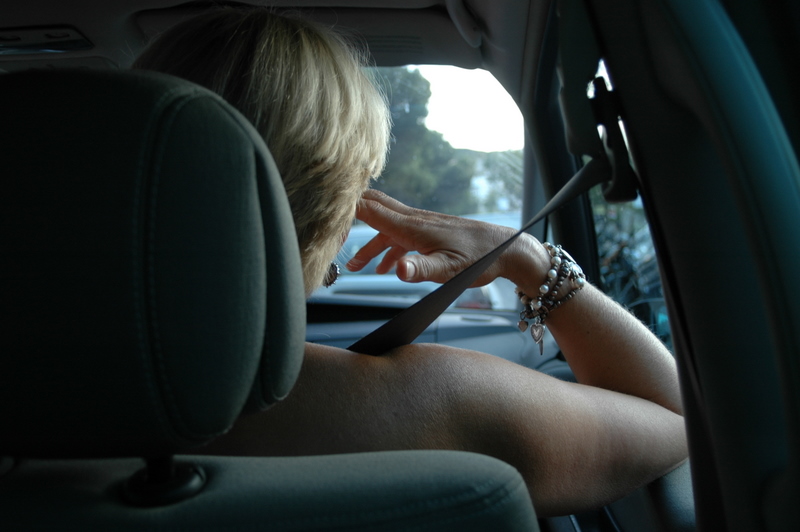April is Stress Awareness Month and Nevadans have now been in the Covid-19 pandemic for over a year. This pandemic has brought several additional stressors upon Nevadans, and a new survey shows that Nevada is the most stressed-out state in the United States. The survey used key areas to decide this with Nevada being ranked first followed by New Orleans and New Mexico. The study also showed that the least stressed out states included Minnesota, South Dakota, and Nevada’s neighbor, Utah. Among the many stressors—Nevada had the highest divorce rate, second highest job insecurity, and ninth highest crime rate per capita in the nation. [1] Looking at these statistics is important, and everyday stressors can have impacts on our daily lives, including the way we drive.
Stress and Driving
Driving while stressed has more implications than we may think. Studies show that those who drive ten or more miles a day are more likely to experience increased blood pressure, increased rates of depression and anxiety, and even higher blood sugar levels. Those who have longer commute times may also experience higher blood pressure than those with shorter traveling distances. [2]
Stress and driving may also increase the chance of reckless driving and road rage as well. Anxiety and stress often make people more impatient, and this can quickly turn into aggression in times of heavy traffic or construction zones. In addition, stressed drivers are more likely to drive distractedly and without their complete focus on the road. In addition, driving while stressed causes us to make impaired decisions that in turn stress out other drivers. This makes it difficult for others to drive on the road, and when everyone is stressed, there are higher risks for collisions, road rage incidents, as well as poor choices. [3] If you feel as though you are too stressed or anxious to drive, it is best to pull aside and cool down or get a ride to your destination. This can reduce the chances of getting frustrated or acting erratically. In addition, planning out your trip prior to leaving your house and leaving with ample time can reduce stress and anxiety over getting to your destination on time.
Road Rage
The conversation of stress and anxiety on the road also brings up an important issue—road rage. Sixty-six percent of fatal car accidents are caused by aggressive driving. Thirty-seven percent of these aggressive incidents involved the use of a firearm. While anyone can exhibit road rage and lose control of their temper, teen males are the most likely to exhibit such behaviors. [4] Here are some questions you should ask yourself about your driving:
- Do you drive over the speed limit and try and rush through yellow lights because you are running late to your destination?
- Do you try and signal to slow drivers in front of you by tailgating them or flashing your headlights at them to get their attention?
- Do you use your horn often [more than once every trip]?
- Do you ever use obscene gestures, communicate angrily, or shout other drivers?
If you answered yes to any of these questions, you are susceptible to road rage. This is completely natural, and many of us react irrationally when in stressful situations. In addition to being aggressive, certain driving behaviors can provoke others. Here are a few questions to consider about your driving:
- Do you use your phone often while driving? Are you often distracted while you drive (eg. eating, switching music, talking to passengers, etc.)?
- Do you always have your high beams on even if there is oncoming traffic present?
- Do you utilize your turn signals when making turns or lane changes?
- Do you check your blind spots when switching lanes to prevent cutting someone off?
If you answered yes to any of these questions, you are contributing to road rage incidents by provoking others. While violence is not acceptable, driving with more caution and with others on the road in mind can help ameliorate aggressive confrontations. Driving with caution can reduce your chances of getting into a bad situation.
Lastly, if you do find yourself in an aggressive situation, it is important to not retaliate or react to the aggressor. You do not want the situation to escalate and become dangerous. Avoid making eye contact with the aggressor and continue driving. If you still feel threatened, try pulling over into a public area and stay in your car until authorities are contacted and arrive.
Road rage is a problem that will not go away anytime soon. However, with caution and consideration, we can all help make Nevada roads less stressful and safer for everyone.
[1] https://www.ktnv.com/positivelylv/new-study-shows-most-least-stressed-states-of-2021
[2] https://time.com/9912/10-things-your-commute-does-to-your-body/
[3] https://www.confused.com/on-the-road/safety/how-to-avoid-driving-stress
[4] https://www.safemotorist.com/articles/road-rage/
Image Credit: Brittepit


